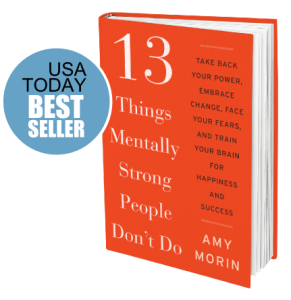Health
3 Ways Men Hurt Themselves by Acting Tough
Refusing to ask for help isn't tough, and it isn't smart.
Posted May 24, 2016

There’s a big difference between being mentally strong and acting tough, and a new study sheds light on the dangers of acting tough.
Psychologists from Rutgers University found that men who held traditional beliefs about masculinity—that men should be tough, self-reliant, brave, and emotionally restrained—were more likely to ignore their medical problems. Despite warning signs of potential health problems, they delayed scheduling appointments with a doctor for as long as possible.
When the men saw a doctor, they minimized their symptoms--when their doctor was male. The men were more honest with a female doctor, most likely because they felt less pressure to appear tough.
Ironically, these same men showed a strong preference for male doctors. Even though they were less forthcoming with male doctors, the men preferred them, because they believed that men are better doctors than women.
Researchers believe men’s desire to act tough may be one of the reasons why, on average, they die five years earlier than women. Men's unwillingness to see a physician, combined with attempts to minimize symptoms, may prevent illnesses from being treated during their earliest stages.
But potential health risks aren’t the only downside of acting tough. Insisting you’re completely self-reliant will take a toll on your job and your relationships as well.
For an all-around healthier—and perhaps even longer life—"tough" men need to stop doing these three things.
1. Refusing to ask for help.
Asking for help, whether it’s seeking counsel from a colleague or scheduling an appointment with a professional, isn’t a sign of weakness. In fact, acknowledging you need help is a sign of strength.
It takes a lot of courage to admit that you don’t have all the answers or to say that you aren’t able to do something on your own. But with the advice, knowledge, and support of others, including your doctor, you can become a stronger person.
2. Denying pain.
Whether you’re suffering from a terrible back ache or you’re feeling overwhelmed by depression, there’s no need to hide your pain. Ignoring discomfort won’t make it go away.
There’s no shame is telling someone that you’re hurting—physically or psychologically. Once you acknowledge your pain, you can create a plan to get better.
3. Believing they’re invincible.
Acting tough often involves creating a false persona that says “I’m bulletproof.” But trying to convince yourself—and those around you—that nothing bad will ever happen to you isn’t helpful.
The truth is, you’re not too tough to get sick. Physical illness and mental health problems can happen to anyone, at any time. And the longer you ignore problems, the more difficult they can be to treat.
Take Care Of Yourself
In a world that prides itself on self-reliance, admitting you have a problem—health or otherwise—can feel uncomfortable. But acknowledging that you’re vulnerable isn’t a sign of weakness.
You can be strong, without acting tough. So don’t be afraid to take down that tough exterior and be a little less guarded. It could improve the quality of your life--and perhaps even the length of it.

Interested in learning how to give up the bad habits that rob you of mental strength? Pick up a copy of 13 Things Mentally Strong People Don't Do.
Want to know how to build your mental muscle? Sign up for my eCourse Mental Strength: Mastering the 3 Core Factors.
Watch my TEDx talk "The Secret to Becoming Mentally Strong."


